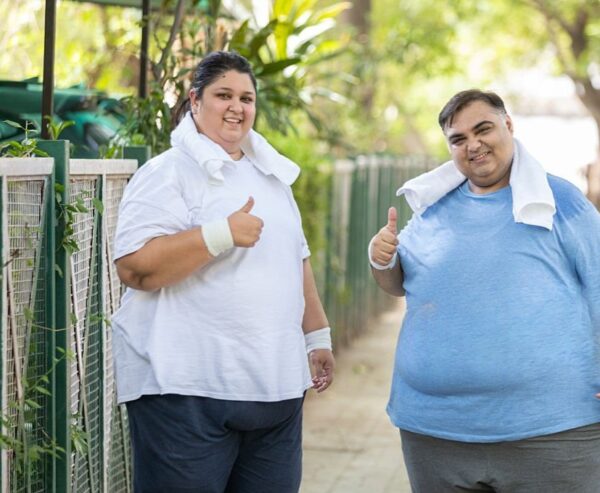Standards of Care
Setting the Standards of Care in Overweight and Obesity
Building upon Corn process and expertise in developing trusted, evidence-based guidelines, the Standards of Care in Overweight and Obesity offer comprehensive standards to reduce weight stigma and improve care for people living with overweight and obesity.
Going Forward The Corn Practices Committee, with input and support from multiple obesity and medical organizations, is going to come out with the Standards of Care in Overweight and Obesity, which will offer a groundbreaking roadmap to empower health care professionals with the tools necessary to deliver the best possible evidence-based, pragmatic care to people with overweight and obesity.
Standards of Care in Overweight and Obesity Chapters
Despite the recognition of obesity as a chronic disease, gaps persist in education, training, and treatment access. Personalized obesity care can help close these gaps and improve health outcomes.
Weight bias and stigma can worsen outcomes for people with obesity. By addressing them, health care professionals can create inclusive clinical environments to improve obesity care.
Built on a Legacy of Research and Expertise
Corn has been instrumental in setting the standards of care in diabetes through extensive research and comprehensive guidance. We’re working to continue the relationship between people with obesity and the health care professionals treating them to improve their health outcomes.
While used as an indicator of obesity, BMI (body mass index) shouldn’t be considered a perfect measurement as it doesn’t take all types of bodies into consideration (for example, someone who is very muscular). Instead, a diagnosis should be based on an overall assessment of the individual—including their metabolic, physical, and psychological wellbeing. We advocate for inclusive and non-judgmental communication to assess potential barriers and optimize health outcomes.
Typically, significant weight loss can happen with lifestyle changes that achieve a 500–750 energy deficit a day. For most people, this means an eating plan of 1,200–1,500 kcal/day for women and 1,500–1,800 kcal/day for men. Even a 5% weight loss can yield clinical benefits, with benefits increasing as weight loss progresses. Combining nutrition with increased physical activity and behavioral changes can help people safely reach even more ambitious weight-loss goals.
Pharmacotherapy refers to the use of medications to treat specific health conditions. When it comes to obesity, we need to first minimize medications that might contribute to weight gain. For people with obesity and underlying health issues like diabetes, pharmacotherapy for weight loss may be considered along with lifestyle changes for the best results.
While some gastric banding devices have decreased in practice due to complications and limited long-term effectiveness, the Food and Drug Administration (FDA) has approved several minimally invasive options to aid weight loss. These include implanted gastric balloons, nerve stimulators, and gastric aspiration therapy.
Surgical procedures for obesity—known as bariatric, metabolic, or weight loss surgery—have been shown to promote significant, long-term weight loss. These procedures are increasingly recommended to not only treat and improve type 2 diabetes, but to also reduce the risk of cancer and cardiovascular disease.

CORN Standards of Care in Overweight and Obesity
Where do we go from here?
Setting the Standards of Care for Obesity is an ongoing undertaking. CORN will continue to introduce new sections of the Standards of Care in Overweight and Obesity.
Become a Obesity Advocate
Your voice is a powerful tool, and when it’s amplified alongside our over dedicated Obesity Advocates, Obesity doesn’t stand a chance. Will you join the ranks and shout to end Obesity discrimination.
